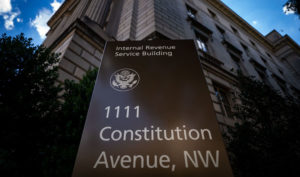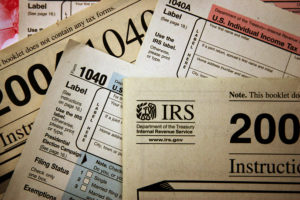
Experts recommend policies to close gaps in the patchwork regulation of nonprofits.
Charitable giving tends to spike around the holidays—but charity fraud also increases.
The Federal Bureau of Investigation (FBI) warns that charity fraud could be even worse this year due to the COVID-19 pandemic. Amid the pandemic, many Americans are finding ways to support others through charitable contributions. Despite fears of a recession, donations increased during the first few months of the pandemic. In addition, the Coronavirus Aid, Relief, and Economic Security Act simplified the process for taxpayers to write off some charitable contributions to encourage giving this year.
But the FBI indicates that scammers may try to take advantage of well-intentioned donors. The agency encourages Americans to look out for charity fraud, which occurs when scammers falsely claim to engage in charity work or operate under the name of an established charity.
In addition, profiteers could organize questionable or fraudulent nonprofits to exploit regulatory gaps in the nonprofit sector. Specifically, the Internal Revenue Service (IRS) grants tax-exempt status to nonprofits, allowing more of an organization’s funding to serve the public. But the sector sometimes lacks sufficient government oversight to ensure that nonprofits spend these funds according to their stated missions.
Most nonprofit regulation happens at the state level. But the IRS does not require specific state regulations for nonprofits to receive tax-exempt status. Regulations across states are inconsistent and many state governments lack the necessary resources and personnel to monitor nonprofits effectively and punish those that engage in fraud or mishandle funds.
Yet, the nonprofit sector continues to play a vital role in U.S. society. Nonprofits provide important benefits to the public and collectively spend about $2 trillion each year, significantly impacting the U.S. economy.
In this week’s Saturday Seminar, scholars highlight gaps in the regulation of nonprofits and propose methods to improve government and public oversight of the sector.
- Charities do not always use donations as donors intend, David A. Friedman of the Willamette University College of Law asserts in a recent paper published in the Maryland Law Review. To heighten standards of candor in the charitable sector while still preserving its ability to self-regulate, Friedman recommends that charity leaders add a candor requirement to the Donor Bill of Rights, a framework written by professional organizations and adopted by many nonprofits to establish norms for ethical fundraising. If such self-regulation proves ineffective, Friedman notes that the Federal Trade Commission and state attorneys general could take enforcement action against nonprofits that adopt the Donor Bill of Rights but fail to pursue its accompanying commitments.
- In an article for the Ohio State Business Law Journal, Jaclyn A. Cherry of the University of South Carolina School of Law explains that charities operate under both state and federal regulation. Cherry argues that this system of dual oversight can increase regulatory efficiency but discourage information sharing, therefore hindering expertise development. Recent scandals involving nonprofit organizations that received charitable status by the IRS—such as the Trump Foundation—have renewed calls to encourage information sharing between state and federal regulators. Encouraging information sharing can preserve federalism while cracking down on fraudulent charities, Cherry suggests.
- In a paper published in the Washington Law Review, the University of Notre Dame Law School’s Lloyd Hitoshi Mayer notes that the government can improve its oversight of the nonprofit sector with “big data,” or the “rapid accumulation of digital data.” The IRS and state regulators should use big data to improve the transparency and efficiency of nonprofit auditing, Mayer suggests. Big data may also give academic researchers and the public, including journalists and watchdog organizations, better access to information about nonprofits. Although big data might enhance government oversight and transparency of nonprofits, users should be wary of faulty results, privacy issues, and overexpansion of government power, Mayer warns.
- Historically, the IRS could take up to two years to approve a nonprofit organization’s tax-exempt application, Eric Franklin Amarante of the University of Tennessee College of Law writes in the Washington Law Review. Because of agency budget cuts and an effort to streamline the approval process, most smaller charities—organization with less than $250,000 in assets—are now free from IRS review. Amarante notes that exempting smaller charities from IRS review has resulted in a “regulatory failure” that allows unscrupulous organizations to engage in harmful activities that ultimately hurt donors and spread public distrust of the charitable sector. To fill this gap, Amarante recommends regulation that would require charities of all sizes to disclose financial data to the public, allowing the public to monitor charities and “make informed decisions about which charities to support.”
- In an article published in the Lewis and Clark Law Review, Georgetown Law’s Alicia E. Plerhoples addresses concerns surrounding public benefit corporations—corporations that pursue both charity and profit. She notes that although these hybrids do not receive tax-exempt status, they are subject to less oversight than nonprofits. In forgoing tax-exempt status, organizers might instead seek financial gain by misleading consumers about the public benefit that the organization provides, Plerhoples argues. She recommends imposing a requirement that public benefit corporations give stock to stakeholders that the corporation claims to help. As a stockholder, the stakeholder could sue the corporation when it does not pursue the public benefit it claims to provide, Plerhoples explains.
- Analyzing how each state regulates charities, Cindy M. Lott of Columbia University School of Professional Studies and her coauthors study how state attorneys general enforce the complex web of laws that regulate charities. They find that to enforce charity regulations, state attorneys general most commonly investigate allegations of illegal activity and when possible use more informal procedures to resolve issues to avoid negative press and costly litigation. If that strategy does not succeed, attorneys general bring lawsuits against organizations. Lott and her coauthors report that many state attorneys’ general offices rely on federal agencies to help investigate allegations of misconduct, but that state and federal agencies lack efficient ways to join their lawsuits against noncomplying charities.
The Saturday Seminar is a weekly feature that aims to put into written form the kind of content that would be conveyed in a live seminar involving regulatory experts. Each week, The Regulatory Review publishes a brief overview of a selected regulatory topic and then distills recent research and scholarly writing on that topic.



